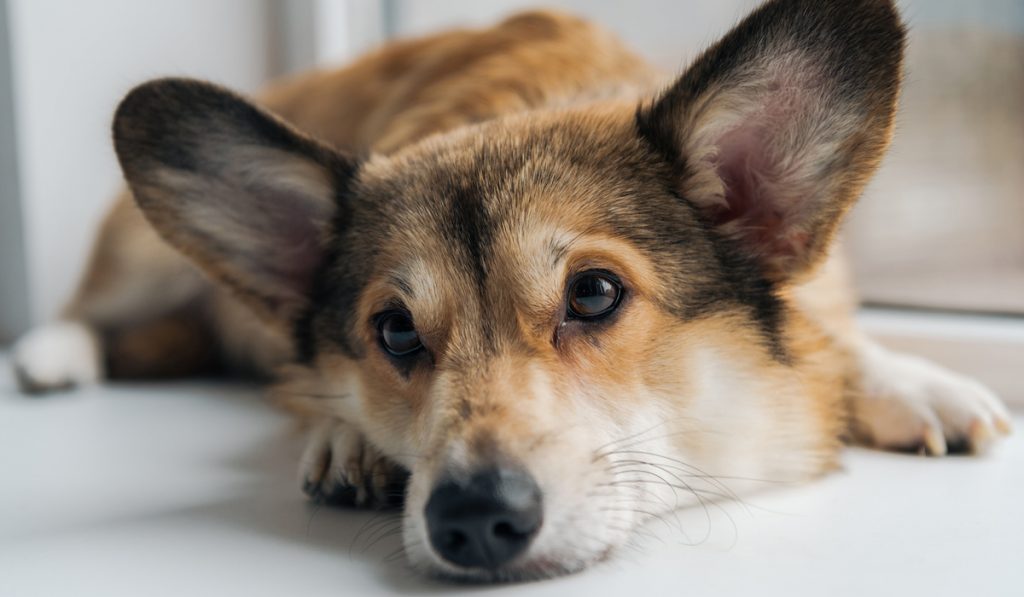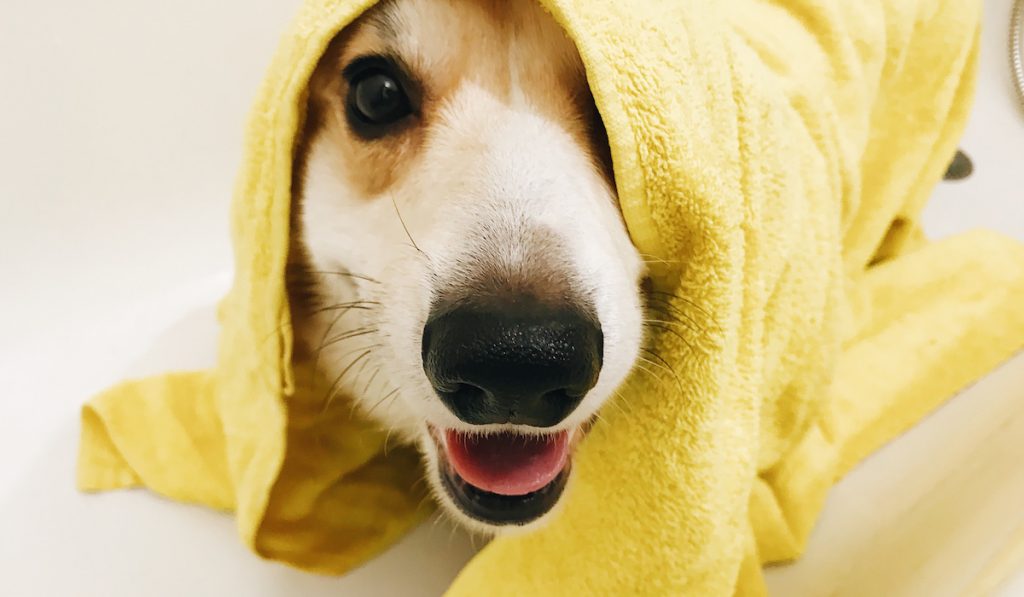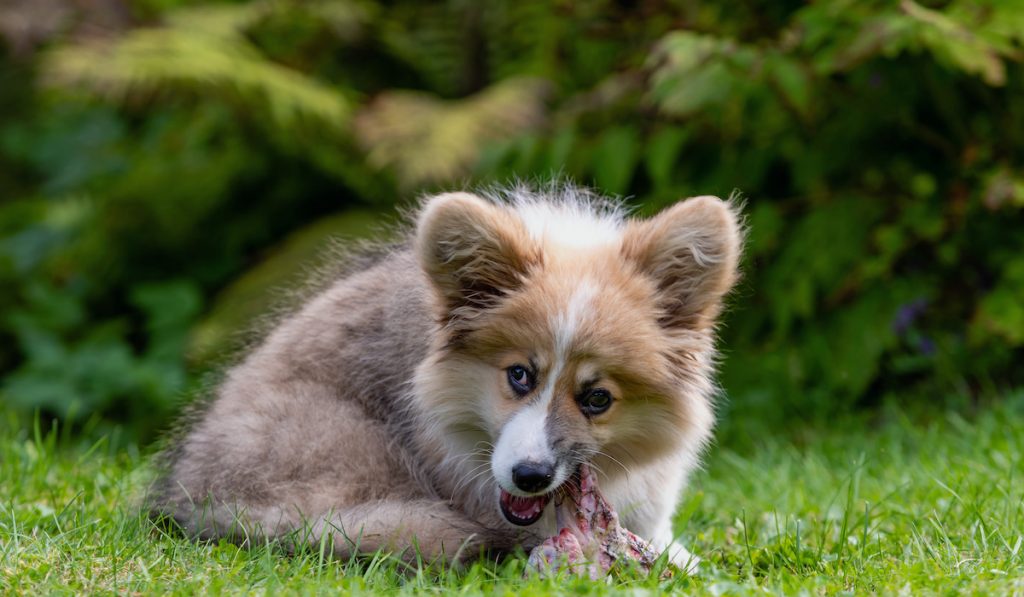The corgi is one of the cutest family dogs that loves to be around people. Its highly sociable nature makes it easy to get along with anyone they meet.
This small-sized dog can be an outside dog only if it is trained properly. Only an adult, well-trained Corgi can stay outside. You can’t put a young Corgi puppy outside because it lacks proper attention and training to be away from its owner.
The younger the Corgi, the more physical and mental training they need. Training a Corgi to be an outside dog is not an easy task.
Six challenges to keeping a Corgi outside:
1. They could feel lonely and abandoned

Corgis are sociable and friendly dogs. They love being petted and cared for. You can spend hours playing with them and they still can’t get enough.
Due to this strong bond with their owner, Corgis can suffer from separation anxiety when you leave them outside without proper training.
When they feel left out, they can rebel and become destructive. For instance, they will destroy your plants or scratch anything around your house, just to get your attention. They can also become disobedient and refuse to follow your commands.
A good way to train them to be independent is slowly keeping them outside for short periods of time. Then, leave some shirts or towels that have your scent to make them feel like you are still nearby.
You can also leave them some toys to play with, so they won’t feel lonely and restless.
2. They might bark a lot

Barking is one of the most common issues when keeping Corgis outside. This noise hazard might disturb your neighbors if you don’t train these dogs properly.
Corgis needs a lot of attention, especially from their beloved owners.
When they become stressed out or anxious, they will jump around, whimper, dig holes in the ground, and bark excessively just to grab their owner’s attention.
This issue could become worse at night. Corgis can sleep all day long and stay up all night. When they’re not sleeping, they become active and want to play with their owner.
Corgis are also sensitive to loud noises like thunder and sirens. This can cause some serious anxiety problems that make them whine, walk restlessly, drool, and even hide under covers.
The best course of action when facing anxious Corgis is to not scold them. Try to pet them and soothe them to make them feel relaxed.
3. Grooming routine could become harder

Corgis have a double coat that serves to insulate their body from a cold environment. Having this type of coat makes them prone to regular shedding.
Typically, corgis have two shedding seasons; spring and fall. Unlike other dogs, they shed quite a high volume of fur. During their shedding season, you will frequently notice a ball of fur near them or any spots they frequently go around your house.
On the flip side, if you live in a warmer area, corgis will shed less heavily than they do in a colder environment. This is true especially during their second shedding season in the fall.
The main reason why a warmer climate promotes a good shedding process is due to the natural shedding process of their undercoat to prepare for a warmer season during the summer.
Also, when they play and run outside, their coats might entangle with debris and dirt. Thus, you have to be meticulous when grooming these dogs.
4. They have a high appetite

Corgis were originally used for herding livestock. Their intelligent and active personality makes them excellent at guarding farm animals. In turn, this behavior will make them prone to hunger more quickly than other passive dogs.
When they are hungry, they have the tendency to eat almost anything. Leaving them unsupervised to eat foreign foods, or worse, poisonous plants could cause serious health issues.
The solution to this problem would be a fixed meal schedule. Set a usual time to feed these dogs. Monitor the amount of food you give them because Corgis are prone to obesity when they overeat.
Feed them with high-quality food or healthy kibbles. Proper nutrition helps in keeping their fur healthy and shiny.
5. They could run away

Due to their highly energetic and active nature, Corgis will have a hard time staying put in one place. If you put them on a lead, they might rebel and try to run away.
Worst case scenario would be an injury around their neck due to restraint being applied on their neck.
The best way to prevent Corgis from getting lost or run away is by training to play around the house. Set aside time to walk with them so that they are familiar with places that they can go. Watch them from afar and see how they behave.
If you still want to put a lead on them, use a longer leash so that they can move freely in a wide radius from their kennel.
You can also install security cameras around your house to monitor their movement at night.
6. They could suffer major health issues

Corgis are adaptable to cold environments. Their double-coats insulate their body from temperature drops as low as 50°F (10°C). However, when the temperature drops to around 48.2°F (9°C), they could suffer from hypothermia.
This generally happens when you leave them outside during the winter. Corgis’ body temperature is slightly higher than the human body temperature. So, the optimal temperature for them to comfortably live is similar to humans.
There are few signs of hypothermia that you can see in Corgis. For instance, they shiver excessively and look uncomfortable. Their fur and skin will also feel colder than usual. Then, they feel reluctant to walk and bark anxiously.
When these signs appear, it is best for you to keep them inside for a while. Wrap their bodies with warm blankets and put them near a fireplace or a heater.
You can also put a health tracker on Corgis to monitor their vital signs and any increase in their body temperature.
Final Thoughts
Corgis are intelligent and adorable dogs. Although they are better staying inside the house, there is no harm in having them as outside dogs.
Be flexible and shower them with love when you train them.
Try not to force too many things on them. It might take a lot of time for Corgis to feel familiar with their new way of living but like any other dog, they will love being outside and free to roam around their lovely home.
Resources
- https://dogsandclogs.com/can-corgis-live-and-sleep-outside/
- https://corgicare.com/are-corgis-inside-or-outside-dogs/
- https://www.innovetpet.com/blogs/breed/corgi-info
- https://www.familylifeshare.com/can-corgis-stay-outside-in-the-cold/
- https://www.happyfitdog.com/can-corgis-sleep-outside-find-the-answer/
